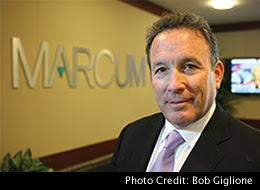Did you see the news that the cost of attending the University of Chicago is likely to hit $100,000 a year by 2025? The price tag at Columbia University, Harvey Mudd College and Southern Methodist University are also on track to hit the six-figure mark.
The projections – based on how much tuition is rising every year – came from The Hechinger Report, a nonprofit that reports on education.
All of these are great schools but this trend really bothers me. The median household income in America is $61,937. What are college administrators thinking?
I understand that it costs money to deliver a great education, but overhead can’t possibly be rising at the rate tuition has been the past few years. Some colleges are taking advantage of the fact that students think a school is more exclusive if it costs more.
But beyond that, the tuition bubble at private four-year schools is undermining the meritocracy that many colleges say they are trying to cultivate.
Schools say they often discount their tuition for students who can’t afford it, but if the list price of getting a bachelor’s degree at a particular college is $400,000 – or it appears that way on paper – many bright and talented students won’t even bother applying.
Even if a student gets a 50% discount on $100,000 in annual tuition, there’s still another $50,000 left to pay that year. Some parents may be able to come up with that kind of money, but many can’t. Students who try to close the gap with loans are going to end up with massive debt that makes it hard to do things like get married, start a family and own a home.
As an employer, I’m glad this issue is coming up in the presidential campaign. Our country’s future depends on having an educated workforce. When annual tuitions reach the levels they’re heading to, there’s something seriously wrong. We need to fix this now.
Fortunately, there are many great public colleges and universities that offer a fantastic education at relatively affordable prices. Here at Marcum, we recruit from both private and public schools. We’re well aware that great, hardworking employees come from across the economic spectrum.
I’ve always believed a college education is ultimately what you make of it. Sure, many of us love our alma maters, but I have never found that the school someone attended makes much difference in how they perform once they enter the workplace. Success is about how you apply what you learned in the real world, which is very different from a classroom, and how well you get along with other people. And don’t downplay the importance of a good work ethic coupled with the sheer desire to succeed.
If tuition keeps going up, I suspect we’re going to see some big changes on the education front. In public accounting, college degrees are required, but that’s not true in every field. Employers like Google, Apple and IBM have now waived the college-degree requirement for new hires, and many future programmers are learning the ropes in boot camp programs that cost a lot less. If memory serves me correctly, Facebook’s billionaire founder Mark Zuckerberg is a college dropout, although that particular college was Harvard. So much for a degree.
The most elite colleges probably aren’t in danger of pricing themselves out of business anytime soon. There will always be wealthy families that can afford to pay whatever they charge. But if the financial pain of paying for a degree reaches a point where many students can no longer justify it to themselves, some schools may find themselves working very hard to attract the bright students they want filling their dorms.
Re-posted with permission of the author: Jeffrey M. Weiner
Jeffrey M. Weiner, Chairman & Chief Executive Officer
Jeffrey M. Weiner joined Marcum in 1981 and has led the firm since 1990, when he was named managing partner. In June 2017, he was named chairman & chief executive officer.
Contact: jeffrey.weiner@marcumllp.com
Website: http://www.marcumllp.com/


